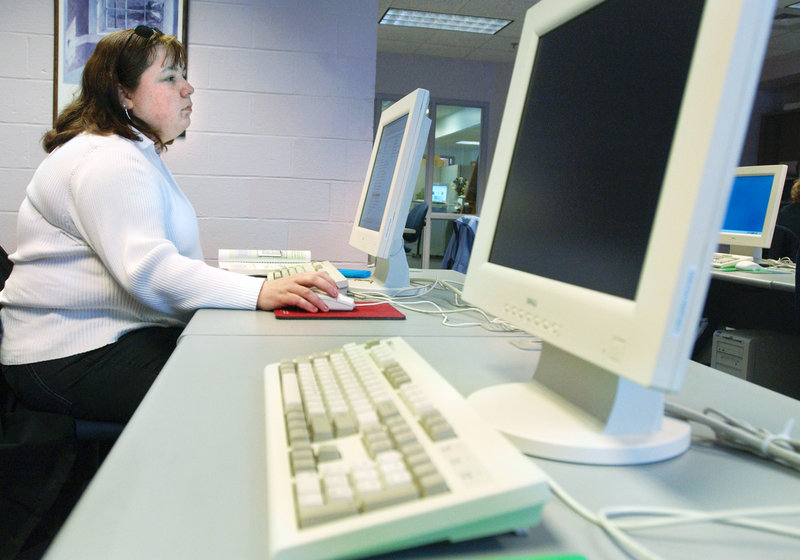AUGUSTA – As Mainers, we often look at empty mill buildings and assume that as those paper and shoe mills closed, our state lost most of its manufacturing industry. Although we have lost many manufacturing jobs over the past 30 years, we have not lost our industrial base.
In fact, as a report issued last month by the Maine Department of Labor’s Center for Workforce Research and Information indicates, the manufacturing sector as a percentage of our economy has stayed the same since 2000, and some manufacturing industries, such as food and electronic products, are growing.
One of the critical missions of the Department of Labor is to train and educate our work force. The changing manufacturing sector presents a number of challenges and opportunities. Indeed, the change in the skillsets that manufacturers need presents both a challenge and an opportunity.
Workers need new skills: They need to use computers, they need to have strong communication skills to explain complex or highly technical processes, they need to be good decision makers, and they need to be able to identify opportunities for efficiencies, innovation and growth.
Workers who have been laid off from an industry that has declined need the opportunity to train for a job in demand. Some of this is going on now, but Maine needs to do more.
We can accomplish more of this through the changes proposed in the State Workforce Investment Board’s request to the U.S. Department of Labor to restructure our work force investment system to allow Maine to utilize federal dollars to create a training system that is responsive to the marketplace.
This initiative, proposed by Gov. LePage, would decrease the system’s administrative overhead and put more money into training for in-demand jobs. The new structure would create consistency of opportunity and services for all citizens through statewide policy development while increasing the local and industry input that guides those policies.
It will also increase business awareness of, and input into, work force development, connecting employers with more trained workers and maximizing the efficiency of current training programs throughout the system, including local CareerCenters; service providers such as Goodwill; the community college and university systems, and apprenticeships, as well as many quality programs, both public and private.
Two key elements of the proposed system involve industry partnerships and a new public-private partnership with both local and regional Chambers of Commerce.
The State Workforce Investment Board will connect with the Chambers in the eight regions, which mirror the tourism regions. The Chambers — existing business intermediaries with an established communication network — can help increase local business participation in the system.
Industry partnerships will improve our identification of and response to work force needs. A small or medium-sized business might need only one or two workers a year with certain skills, but in aggregate, employers in a particular region could have enough demand to justify an adult-education course.
Partnership with the Maine Manufacturers Association, for example, can improve the identification of jobs that are going unfilled and for which we should provide training. Input from industry might lead to the creation of a course for a community college or an apprenticeship program to meet an industry’s ongoing needs.
Bringing the players in our work force development system together with businesses and increasing local input is a challenging task. However, for Maine to compete in the 21st century, it must be done.
We have a tremendous opportunity not only to improve the earning power of hardworking people, but also to make finding qualified staff easier for businesses. This, along with the Le-Page administration’s other reforms, will attract more businesses to our state, creating more jobs and benefiting our economy.
As the Center for Workforce Research report indicates, manufacturing processes will grow in complexity, and we need to have a work force that can grow and adapt to these changes. As commissioner of labor, I will support our work force by creating the training and educational opportunities Mainers need to be successful.
Jeanne Paquette is the state commissioner of labor.
Send questions/comments to the editors.



Success. Please wait for the page to reload. If the page does not reload within 5 seconds, please refresh the page.
Enter your email and password to access comments.
Hi, to comment on stories you must . This profile is in addition to your subscription and website login.
Already have a commenting profile? .
Invalid username/password.
Please check your email to confirm and complete your registration.
Only subscribers are eligible to post comments. Please subscribe or login first for digital access. Here’s why.
Use the form below to reset your password. When you've submitted your account email, we will send an email with a reset code.